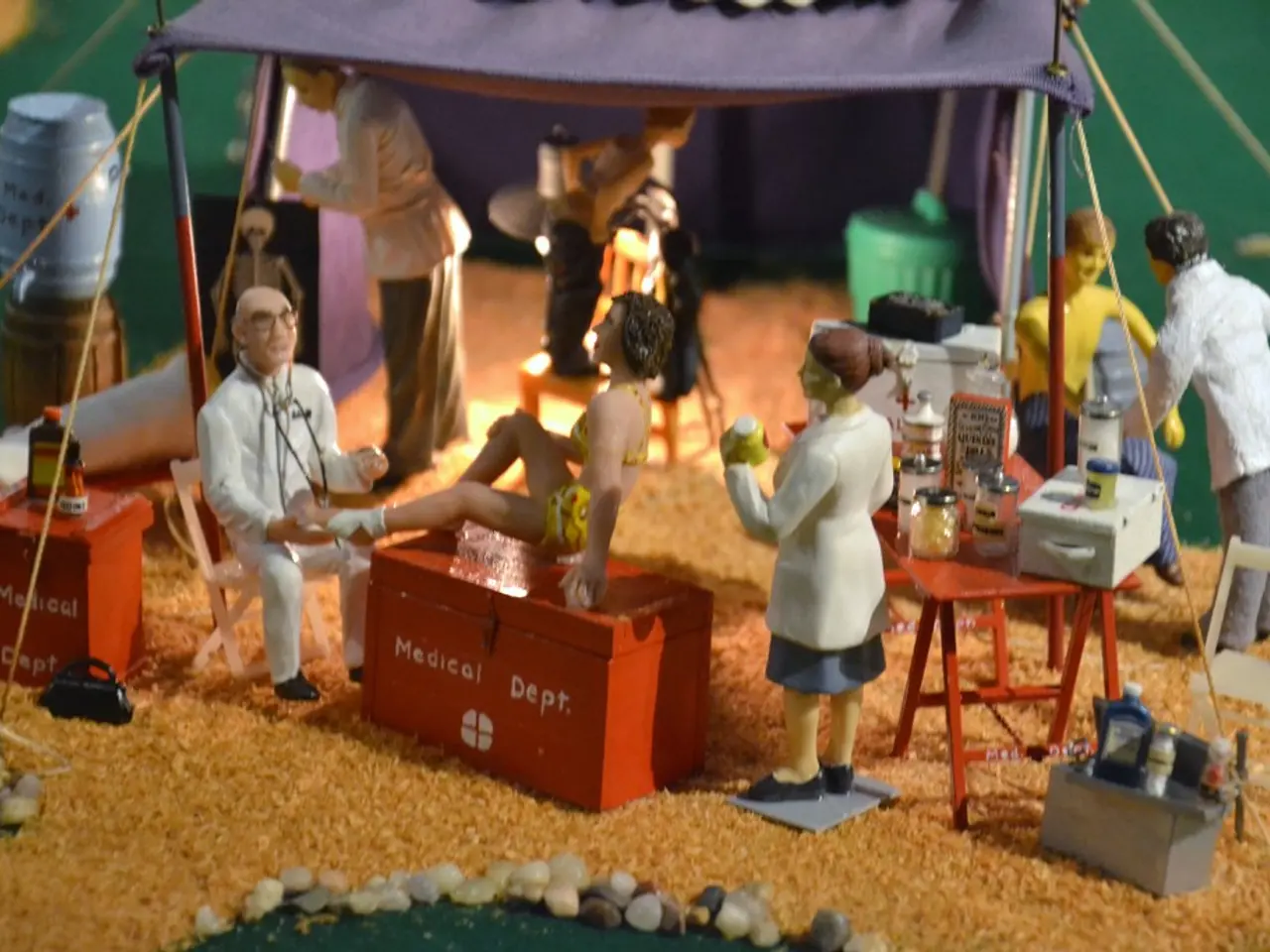Instructions for Handling Incidents When a Child Consumes Toys, Magnets, or Batteries
In the bustling world of a family, it's essential to be aware of potential hazards that could harm our little ones. One such danger is the ingestion of certain objects, particularly by curious children. Here's a rundown of common items that pose a risk, along with advice on what to do if a child swallows something and how to prevent such incidents.
Firstly, it's crucial to be aware of the dangers posed by magnets. If a child swallows more than one magnet, they can attach to each other through the bowel walls, potentially causing severe damage such as cutting off blood supply, causing a hole in the bowel, twisting intestines, or ulcerations. This situation should be treated as an emergency and immediate medical attention sought.
Coins are another common item that children may swallow. If this happens, a child should be taken to the pediatrician or a hospital emergency department without delay. Symptoms such as coughing, gagging, trouble swallowing, drooling, chest pain, stomach pain, vomiting, or problems going to the bathroom after swallowing an object indicate the need for immediate medical attention.
Regular alkaline batteries are less likely to be swallowed due to their larger size, but they can still be dangerous if ingested. Lithium batteries, commonly found in toys, hearing aids, key fobs, and watches, pose a more significant risk. If a child ingests a lithium battery, it should be treated as an emergency, as they can cause severe internal burns and other serious complications.
Prevention is key when it comes to ingestion. Closely monitoring and observing children as they grow and develop can help prevent such incidents. Encourage your child to play with age-appropriate toys to minimize the risk of swallowing small objects. Be particularly cautious with certain imported toys, as some have been found to contain toxic substances such as plasticizers, which can be harmful if ingested. While no specific game brands have been identified as containing poisonous materials, caution is advised with uncertified or low-quality toys.
If you're unsure about a situation or concerned about a child swallowing something, there are resources available to help. The National Capital Poison Center hotline (1-800-222-1222) can provide advice and guidance in such cases. Always remember, the safety and well-being of our children should be our top priority. By staying vigilant and informed, we can help keep our little ones safe from harm.








